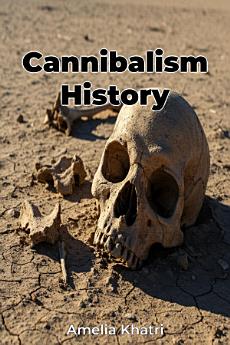Cannibalism History
Über dieses E-Book
The book begins by establishing a historical and anthropological context, differentiating types of cannibalism. Major chapters present case studies of famine-related cannibalism, analyze ritualistic practices like those of the Fore people of Papua New Guinea, and examine historical accounts from diverse regions. The concluding chapters synthesize these examples, offering a nuanced understanding of the recurring patterns and unique characteristics of cannibalism.
Understanding these events provides invaluable insights into human behavior under extreme pressure, the evolution of social norms, and the complex relationship between culture, environment, and survival. Ultimately, ""Cannibalism History"" argues that cannibalism is not simply a random act but a behavior driven by survival instincts, spiritual beliefs, or social pressures. This understanding has practical applications in understanding modern-day famine relief efforts, disaster preparedness, and the importance of cultural sensitivity. The book also addresses ethical considerations involved in studying such a sensitive topic.








